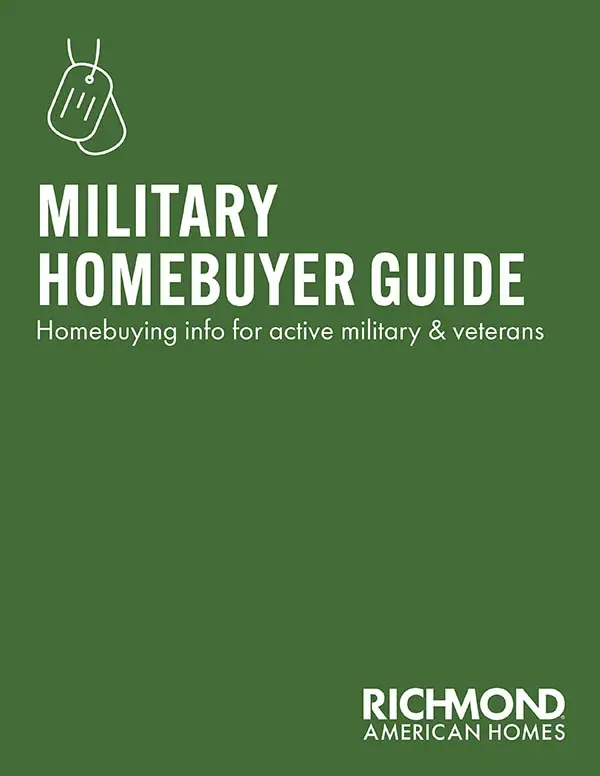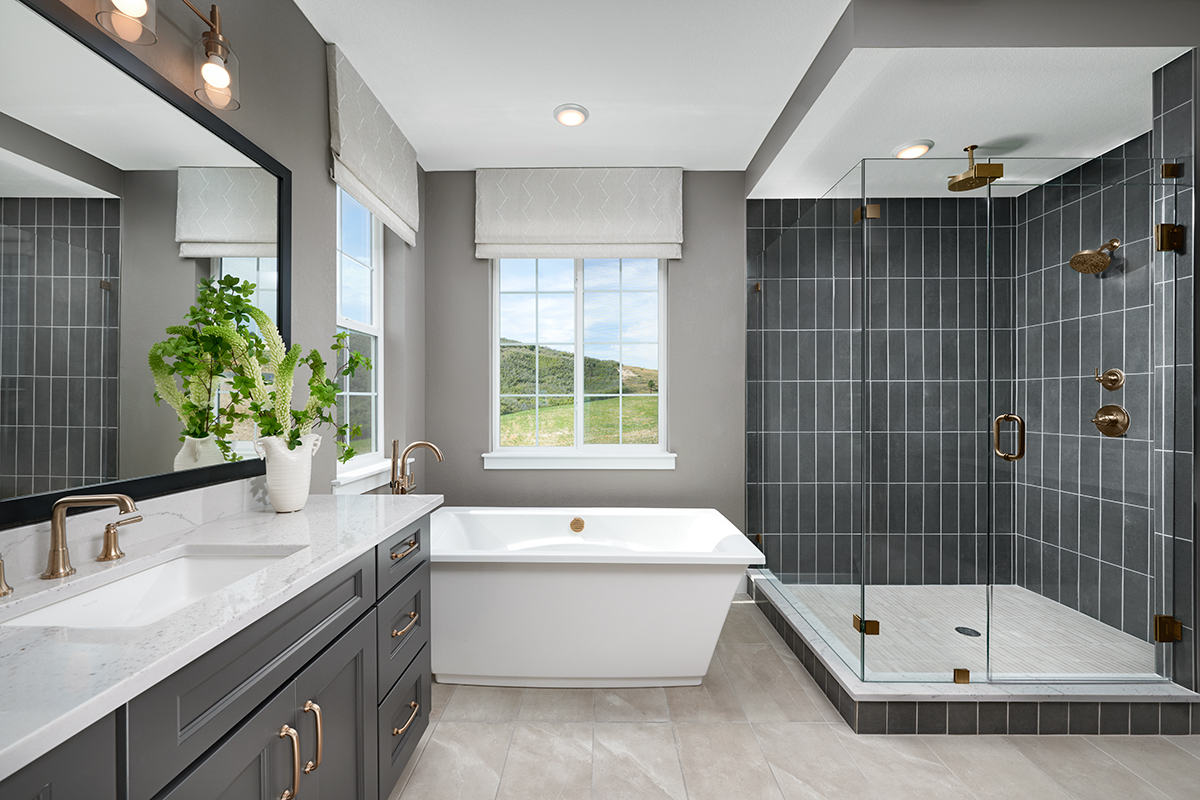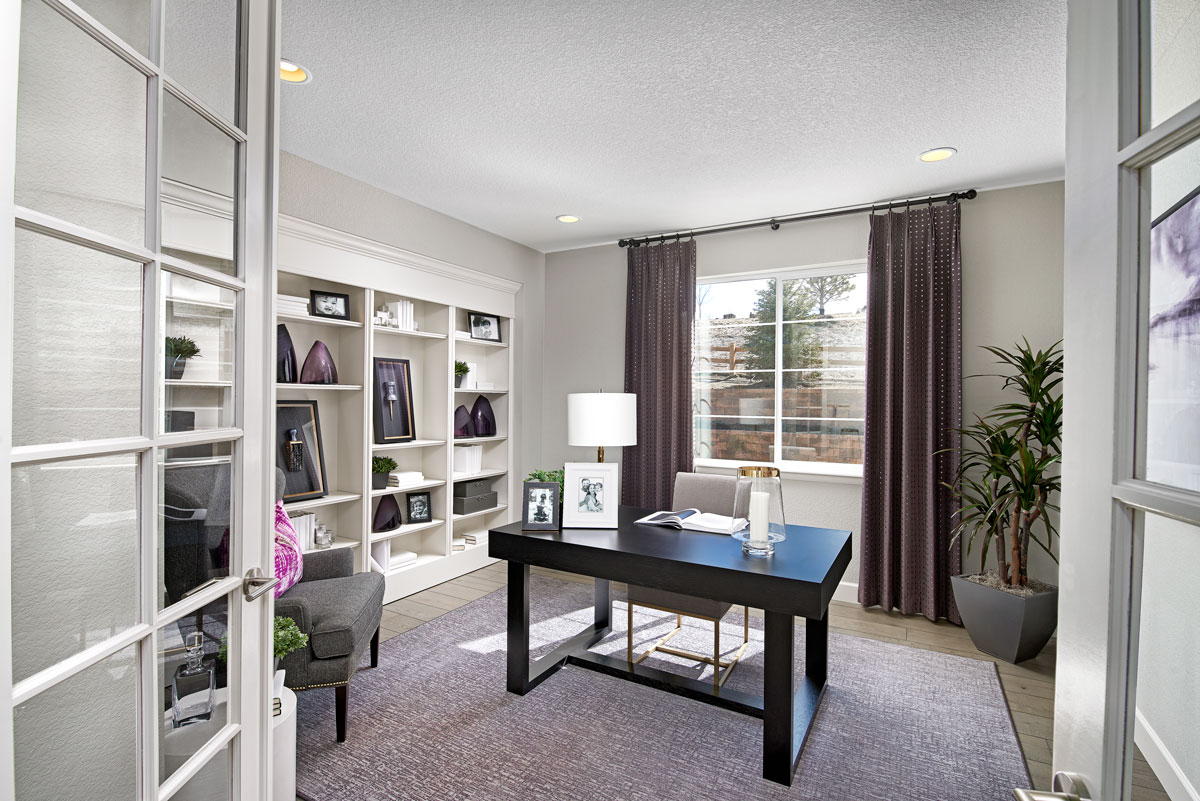Did you know that active-duty and veteran military buyers may be eligible for home loans with little (or no) money down, low (or no) closing costs, and competitive interest rates—all while avoiding paying monthly mortgage insurance? The VA loan benefit was designed to help individuals in the U.S. armed forces and their families buy, refinance, or improve their homes more affordably. If you’re shopping for a new home and you think you might qualify for this valuable entitlement, check out the following VA loan FAQ and speak with a loan officer!
This exciting benefit could help you into your dream home sooner, as well as potentially get you lower monthly payments than other loan programs. In this article, we’ll touch on some common questions military buyers have about the VA financing option, but your loan officer should be able to provide better answers tailored to your specific situation.
What is a VA loan?
VA home loans are provided by private lenders—like mortgage companies, banks, and credit unions—but are guaranteed in part by the Department of Veterans Affairs. Because VA mortgages are backed by the government, the risk to lenders is low, allowing them to offer VA loan rates that are generally more favorable than conventional loan rates.
What is VA loan entitlement?

Entitlement is essentially the portion of your loan that the VA will guarantee, i.e., what the government will repay if you default on the loan. It’s broken up into two components:
- Basic entitlement: The VA will guarantee up to $36,000 of your loan amount.
- Bonus entitlement: For loans exceeding $144,000, the VA will guarantee up to 25% of the loan amount, depending on your eligibility and previous usage.
Full entitlement is typically available if you have never taken out a VA loan or if you’ve paid off a previous VA loan and sold the corresponding property. With full entitlement, you can purchase a home with no money down, regardless of how much money you borrow. However, if you already have an active VA loan and are applying for another, you’ll likely receive partial (or remaining) entitlement. This determines how much you can borrow for your new loan without needing a down payment.
Your lender or the VA can help you calculate your exact remaining entitlement amount.
Who qualifies for a VA loan?

Minimum service requirements vary, but you may be eligible for a VA loan if:
- You currently serve on regular active duty in the military.
- You have served on active duty in the military and have since been honorably discharged.
- You currently serve or have served in the Selected Reserves or National Guard.
- You are an unmarried spouse of a veteran who died on active duty, or as a result of a service-connected disability.
To confirm eligibility, you can request your Certificate of Eligibility (COE) from the VA.
How many times can you use a VA loan?
Good news: the VA home loan is a lifetime benefit! Once you establish eligibility, you can use this perk as many times as you’d like, as long as previous loans are paid off or your entitlement has been restored (see below for more information on that).
Can you have two VA loans at the same time?
There are a few situations in which you may have more than one VA loan at once. These can include:
- You are selling a current home purchased with a VA loan and buying a new one with another VA loan.
- You (or your family member) receive a Permanent Change of Station and have to move. You decide to rent out your current home and buy another home near your new station, also with a VA loan.
- You refinance your existing VA loan to a new one.
Keep in mind that carrying two VA loans simultaneously can impact your available entitlement amount, which could lead to you having to pay a down payment on your second loan.
How long do VA loans take to close?
The short answer is, it depends. A common misconception is that VA loans take longer to close than other loan types. In reality, closing times are often similar to those with other loans, depending on your lender, your home, your preparation, and your financial situation.
The potential for delays often comes from the VA appraisal process. Your lender must order an appraisal from a VA-approved professional, who will assess the home’s value and ensure it meets the Minimum Property Requirements (MPRs). These standards protect you from purchasing a property with major structural or safety issues. While a home inspection is not required by the VA, it’s strongly recommended to identify potential problems before closing.
Appraisal and inspection delays can happen, but they don’t necessarily reflect the efficiency of the VA program itself. The average time to close for a VA loan with our affiliate lender, HomeAmerican Mortgage Corporation (see licensing info), is 23 days as of June 2025.
Do VA loans have PMI (Private Mortgage Insurance)?
Nope! Unlike some other loan types, VA loans do not require you to pay PMI, even with no down payment. This can be a significant financial advantage for homeowners!
What down payment is required for a VA loan?
You can purchase a home with no down payment, subject to VA guidelines regarding entitlement. If you have partial entitlement, you may need to pay a down payment in order to bridge the gap between your remaining guaranty and 25% of your loan amount. It’s important to note that you may still be required to pay an earnest money deposit, which is typically credited to you at closing.
Do you have to pay closing costs with a VA loan?
Some closing costs are unavoidable (such as appraisal fees or title insurance), but the VA limits what lenders can charge and allows sellers to pay some or all of the costs on your behalf. This means many borrowers close with minimal out-of-pocket expenses.
Do VA loans have fixed or adjustable rates?
Both options are available. As a reminder, a fixed-rate loan keeps the same interest rate and payment throughout the loan term, while an adjustable-rate loan (ARM) tends to start with a lower rate for a set period, then adjusts periodically. Fixed-rate financing tends to be popular with buyers looking to stay in the same house for a long time, while ARMs are great options for those who move often. Be sure to speak to your loan officer to find out which option is right for your situation.
What are the benefits of a VA loan?

To recap some of the highlights from this VA loan FAQ, here are the main advantages of this program:
- You can purchase a home with zero or little down payment required.
- You can avoid paying PMI.
- You may be offered more competitive interest rates.
- There are typically limits on closing costs.
- The credit score requirements are lower than some other loan types.
- The program is offered as a lifetime benefit with eligibility.
For many military families, these features make VA loans one of the most flexible and affordable paths to homeownership.
How do you apply for a VA loan?
Applying for a VA loan is similar to applying for other mortgage types, with a few key differences. The process often includes the following steps:
- Request your COE from the VA to confirm eligibility.
- Contact an experienced lender to begin the preapproval process. Our affiliate mortgage company, HomeAmerican Mortgage Corporation (HMC), is well-equipped to help military homebuyers secure a loan for the home of their dreams.
- Find and contract on your home.
- Pay your earnest money deposit.
- Your lender will order an appraisal from a VA-approved professional. You may also want to have an inspection conducted as well.
- Review pre-closing paperwork and provide your lender with any additional information they request.
- Show up to the closing table and sign for your brand-new abode!
What other loan types are there?
While a VA loan is undoubtedly a valuable benefit for members of the U.S. military and their families, a different type of mortgage could be a better fit for your specific lifestyle or needs. These other loan types can include:
- FHA loans. Backed by the Federal Housing Administration (FHA), these loans allow buyers to put down as little as 3.5% of the purchase price. However, they can require upfront and monthly mortgage insurance premiums, which may increase overall costs.
- Conventional loans. These are not backed by a government agency. Conventional loans typically require higher credit scores and larger down payments, but they can offer flexibility for buyers who don’t meet VA or FHA criteria.
- USDA loans. Low- to moderate-income applicants in eligible rural areas may qualify for a loan guaranteed or provided by the U.S. Department of Agriculture (USDA). USDA financing typically accepts lower credit scores from applicants and may require little to no down payment.
Your loan officer can help you compare these loan types side by side and identify the best fit for your goals, budget, and circumstances.
Final thoughts on VA loans
For military homebuyers and their spouses, understanding your VA loan benefits can make all the difference between renting and owning. This powerful program rewards your service by removing many of the barriers that prevent people from buying a home, such as down payments, hefty closing costs, high interest rates, and more. The goal is to make homeownership more accessible, affordable, and seamless for American military families. Whether you’re a first-time buyer, relocating for duty, or refinancing an existing mortgage, VA financing could be your key to financial stability and a home you can truly call your own.
We hope that this VA loan FAQ helped clear up your most pressing questions about the program. We appreciate your commitment and service to this country, and helping you find and finance your dream home is the least we can do to show our gratitude. For additional assistance, please reach out to the team at HMC by calling 866.400.7126.
Moving while in the military?
We have a guide for you! Get tips on VA loans, BAH budgeting, packing, moving and more.





